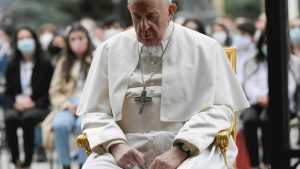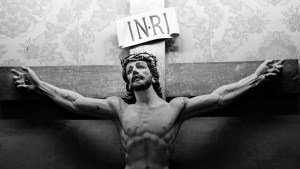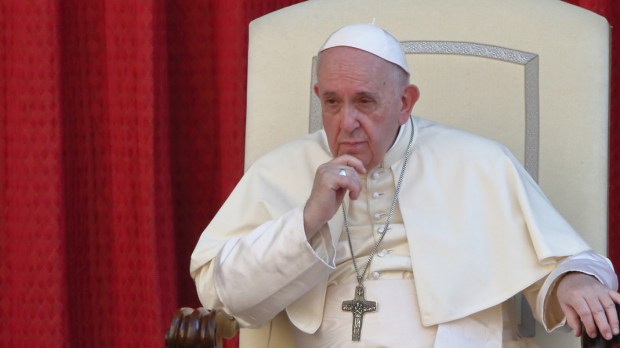Immediately after the joy of Christmas Day, the Church offers us a grisly scene to contemplate — the account of the very first person losing his life because of his belief in Christ: St. Stephen, the protomartyr (first martyr).
The story of how this early deacon was killed by stoning is related in the seventh chapter of Acts of the Apostles.
Pope Francis considered his example before praying the midday Angelus on his feast day, December 26, saying that he is the first of a whole host of men, women, and children — even more today than in early times — who reflect this “light” that came into the world on Christmas.
Yesterday’s Gospel spoke of Jesus, the “true light” that came into the world, the light that “shines in the darkness” and “the darkness has not overcome it” (Jn 1:9, 5). Today we see the person who witnessed to Jesus, Saint Stephen, who shines in the darkness. Those who witness to Jesus shine with His light, not with their own light. Even the Church does not have its own light. Because of this, the ancient fathers called the Church: “the mystery of the moon.” Like the moon, which does not have its own light, these witnesses do not have their own light, they are capable of taking Jesus’ light and reflecting it.
But, the pope reflected, in this world of ours “immersed in wickedness,”
What good does it do to pray and forgive? Just to give a good example? But, what does that serve?
He assured that there is a reason to reflect this light of Christ, and it is shown in the conversion of St. Paul, who was an eye-witness of the stoning of Stephen. “Paul was born by God’s grace, but through Stephen’s forgiveness, through Stephen’s witness. That was the seed of his conversion,” the pope said.
This is the proof that loving actions change history: even the ones that are small, hidden, everyday. For God guides history through the humble courage of those who pray, love and forgive. There are so many hidden saints, saints who are next-door, hidden witnesses of life, who with little acts of love change history. To be witnesses to Jesus – this is true for us as well. The Lord wants us to make our lives masterpieces through the ordinary things, the everyday things we do. We are called to bear witness to Jesus right where we live, in our families, at work, everywhere, even just by giving the light of a smile, a light that is not our own – it comes from Jesus – and even just by fleeing the shadow of gossip and tattle-taling.
He gave some concrete examples of when to reflect this light of Christ:
And then, when we see something that is wrong, instead of criticizing, badmouthing and complaining, let us pray for the one who made a mistake and for the difficult situation. And when an argument starts at home, instead of trying to win it, let us try to diffuse it; and start over again each time, forgiving the one who offended. Small things, but they change history, because they open the door, they open the window to Jesus’ light.

Read more:
The world keeps going thanks to people who pray, says pope
Like Stephen, we can change history, the pope said. “We too can change evil into good each time, just as a beautiful proverb proposes which says: ‘Be like the palm tree: they throw stones at it and it drops down dates.'”
The Holy Father concluded asking for prayer for the many martyrs of our own day, who are following in the footsteps of St. Stephen:
Today, let us pray for those suffering persecution because of the name of Jesus. They are many unfortunately. There are more than in the beginning of the Church. Let us entrust these brothers and sisters to the Madonna, that they might respond with meekness to oppression and that, as true witnesses to Jesus, they might conquer evil with good.

Read more:
The Martyrs of 2020: Disciples continue to witness to Christ

